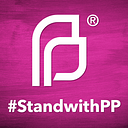Black Futures Month
By Wendy Stark, President and CEO, Planned Parenthood of Greater New York Action Fund
Black History Month, or most recently named Black Futures Month, is a time to celebrate the brilliance and accomplishments of Black people and recommit to fighting for the future that Black communities deserve. It is a time to recognize and acknowledge the efforts of Black people — and Black women and Black LGBTQ+ people in particular — who have contributed to and led the many social justice movements that continue to this day.
And yet, on the first day of this month, we witnessed the erasure of Black history on a national scale when the College Board released its official new curriculum for AP African American Studies courses. The new curriculum purged the names and contributions of vital Black scholars — especially Black queer and feminist leaders — and removed or whitewashed important content around Black Lives Matter, queer studies, reparations, and incarceration — subject matters that are the cornerstones of social justice movements and Black Liberation.
In the spirit of this year’s Black History Month theme, Black Resistance, we will leverage our platforms to uplift Black communities and Black leaders in social justice movements who the College Board is attempting to erase. These leaders understood and have taught us that the only way to fight oppression is through resistance.
bell hooks was a queer feminist scholar, professor, and activist whose work examined the connections between race, gender, and class. Her 1981 book Ain’t I a Woman: Black Women and Feminism examined the impact of sexism on Black women throughout history as well as racism within the feminist movement.
James Baldwin was a queer writer and activist. In a collection of writings titled “The Price of the Ticket,” Baldwin wrote on education:
Kimberlé Crenshaw is a pioneering scholar and writer on civil rights, critical race theory, Black feminist legal theory, and race, racism, and the law. Crenshaw coined the term “intersectionality” to describe the overlapping oppression of intersecting identities.
We owe much of our society’s progression toward justice and equity to Black Resistance. Resistance must also be a shared effort; everyone has a role to play, especially those of us who have unfairly benefitted from white supremacy. We must all fiercely challenge white supremacist systems when they attempt to exert power — whether that power be gained through controlling narratives about Black history or through controlling Black futures via attacks on bodily autonomy, in part exemplified by police brutality and anti-abortion legislation.
We at Planned Parenthood of Greater New York Action Fund are committed to resisting racism and oppression everywhere, including inside our own institution. We’re committed to investing in and uplifting Black communities and partnering with Black-led organizations to advance health equity. And we’re committed to learning and listening to what our Black community members want the future of our organization to look like.
